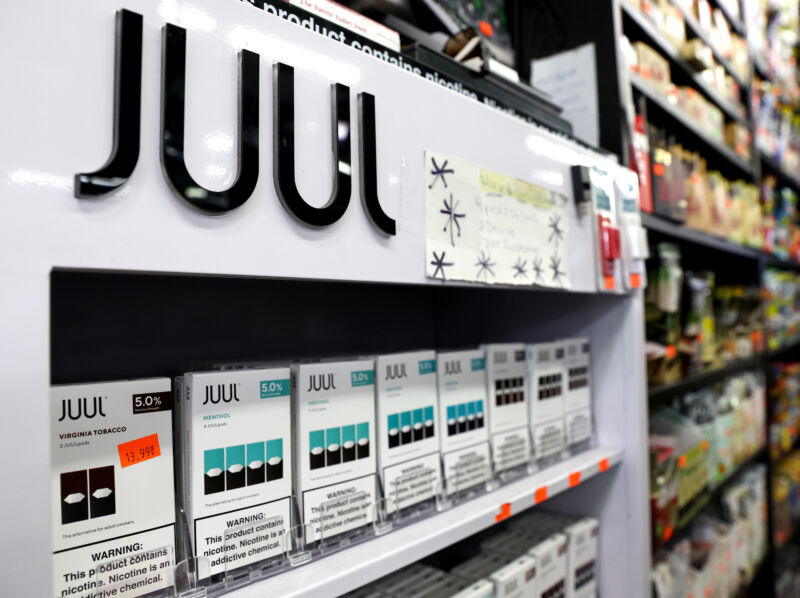FDA backpedals on Juul ban, says it’s re-reviewing company’s “unique” issues

The US Food and Drug Administration on Tuesday paused a decision that would effectively force Juul off the US market. On Wednesday, the two sides agreed to put their court battle on hold as the regulator conducted an additional review of Juul’s products.
For people who use Juul products, the new development doesn’t change much for now: A panel of federal appeals court judges had already issued an administrative stay on June 24, which meant Juul products could remain on the market while the company fought the FDA’s denial of its marketing authorization request in court. But, in the longer term, it represents an embarrassing backpedal by the FDA and signals that Juul may have a good chance of permanently reversing the denial.
On June 23, the FDA announced that it denied US marketing authorization for all Juul products, effectively forcing the company off the e-cigarette market it previously dominated. Though the FDA’s decision had been leaked to the press the day before, it still jolted industry watchers, consumers, and Juul, which said in court documents it first got wind of the decision through the press leak.
In announcing its denial, the FDA claimed Juul failed to provide sufficient toxicology data to prove its products were safe. Specifically, the FDA was concerned, in part, about data on “potentially harmful chemicals leaching from the company’s proprietary e-liquid pods.”
The next day—June 24—Juul filed an emergency motion in a federal appeals court to stay the FDA’s denial, and a panel of judges issued an administrative stay. Under the terms of that stay, Juul needed to file an emergency petition by June 27—which it did—and the FDA would need to file its response by July 7.
In its emergency petition for a longer stay, Juul argued that its more than 125,000-page authorization request did include all the toxicology data the FDA claimed it was lacking. Further, the company accused the FDA of carrying out a “haphazard regulatory process,” and said the regulator was under pressure to ban Juul after it was widely blamed for an epidemic of youth vaping.
Data dispute
A particular point of contention, according to court documents filed by Juul, is that the FDA claimed it lacked toxicology data on four specific chemicals that leach from the company’s plastic pods into its e-liquid, which is intended to get heated, vaporized, then inhaled. The toxicology reports on the aerosol components from that vaporized e-liquid did not include data on those four chemicals. But Juul argued that it provided toxicology data on all detectable aerosol components.
Laura Crotty Alexander, an e-cigarette researcher at the University of California, San Diego, reviewed Juul’s court documents at the request of The New York Times and said Juul’s line of argument is reasonable. It’s possible that the four chemicals in question were converted to something different during the vaporization process. “It’s not surprising that a chemical that was originally liquid is not an aerosol,” Crotty Alexander told the Times.
It’s important to note that the identities of the four chemicals are not public—they were redacted from court documents—so it’s not possible to say whether they should have been present in the aerosol plume or not.
On Tuesday, July 5—two days before the FDA’s deadline to submit a response to Juul’s emergency petition in federal appeals court—the agency said it would conduct a further review of Juul’s data and application.
“The agency has determined that there are scientific issues unique to the Juul application that warrant additional review,” the FDA tweeted Tuesday evening. “This administrative stay temporarily suspends the marketing denial order during the additional review but does not rescind it.”
In a statement, Juul Chief Regulatory Officer Joe Murillo said that “with this administrative stay from the FDA now in place, we continue to offer our products to adult smokers while we pursue the agency’s internal review process.”
https://arstechnica.com/?p=1865015